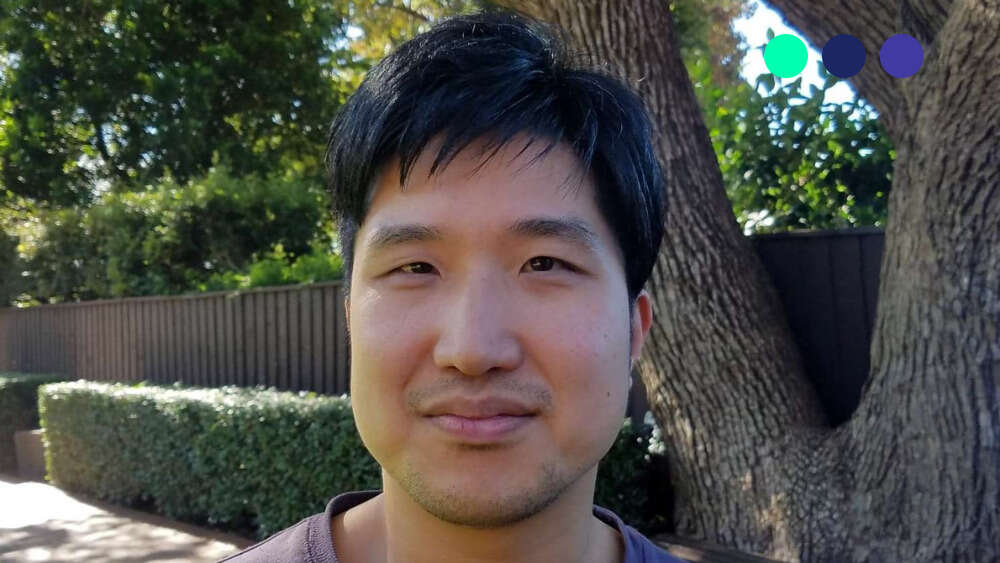‘The experience of dying is not something we talk about’
Tim’s story | Worshipping God, more than the miracle
“In 2014, I started Bible college. I really enjoyed it – Old Testament, New Testament, both biblical languages. In June of that year, I was about to sit my first end-of-semester exams. Then one afternoon, according to my wife, she walked into our bedroom where I’d been taking a nap, and she couldn’t wake me up.
I was previously healthy. Nothing was wrong with me. I was doing a lot of boxing and wrestling. But my wife saw that my breathing was really off. It sounded like a person who was about to die. She called the ambulance and they took me to hospital, where I was declared brain dead.
The doctors began organising with my family to have my organs donated. They said there was only an infinitesimally small chance of me coming back. They couldn’t detect any activity in my brain. The EEG was flat. I also had visitors to my hospital bed and they told me afterwards that they saw it. It was flat. The doctors said that after the brain stops, the organs decay very quickly. They wanted to turn the ventilator off.
My wife did the only thing she could do. She prayed, crying out to God. Our Korean church in Sydney also got behind her, praying, along with people around the world.
On the third day, my wife saw my toes move, barely, but there was movement. Then, apparently, I opened my eyes. My wife said that the first thing I said to her was that I had been to heaven and met Christ.
I don’t remember saying that. I don’t remember heaven or meeting Jesus. I wish that I did. But my wife says that I said it. The doctors, apparently, were embarrassed. Then they said I wouldn’t make a full recovery. They said that my speech or my movement would suffer. But no one was able to tell me what had happened or why.
Afterwards, I felt very confused. Why did it happen to me? I knew I could have died and not come back. I don’t really know how to respond to that. The experience of dying is not something we talk about …because we can’t. At church, people started to revere me, almost like a saint. The accolades were flowing. Everyone was amazed. They called me the ‘Miracle Man’ or ‘Modern-day Lazarus’. But inside, I felt like I was walking in the desert, spiritually. I couldn’t feel God’s presence anymore. When people wanted to hear my story, I felt like a poser. There was a lot of internal struggle. I had trouble with my short-term memory. I still do, on occasions.
But slowly I went back to Bible college and I kept doing my studies. I failed some subjects, but I did them again. Seven years later, I’m doing my final subject this month. I’m about to finish.
I think God wanted to show me that he works in his ways, with or without me being aware of it or feeling his presence. He’s always there, he has always been there and he always will be. He works regardless of my feelings or me knowing about it. He works when I’m in hospital, but equally when I’m in the spiritual desert and can’t feel him. He says ‘Trust me.’ He wants each of us to worship him, for who he is, not for the miracle or the form that it takes.
I think it’s a bit like the book of Job, although of course what happened to me was nothing like what happened to Job. But in the same way, I need to trust that God is good and sovereign all the time, regardless. The time in the desert was invaluable for me. I was crying out to God. It also taught me that even when people think someone, or something, is a lost cause, God still has plans for them – either here, or in heaven.”
“Then Job replied to the Lord: ‘I know that you can do all things; no purpose of yours can be thwarted. You asked, ‘Who is this that obscures my plans without knowledge?’ Surely I spoke of things I did not understand, things too wonderful for me to know.’”(Job 42:1-3)
Tim’s story is part of Eternity’s Faith Stories series, compiled by Naomi Reed. Click here for more Faith Stories.


